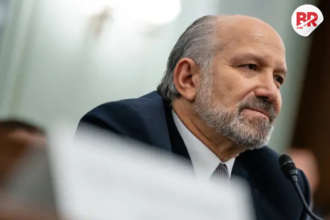
The Pahalgam terror attack shocked India. 26 people were killed. Dozens were injured. The government quickly called it what it was: cross-border terrorism with links to Pakistan.
And yet—despite the gravity—no global leader directly blamed Pakistan.

That’s the truth.
Sympathy? Yes. Accountability? Missing.
From the US to Europe, Russia to the Middle East, every major country expressed sorrow. Their condolences were heartfelt. But there was one word missing from nearly every official statement: Pakistan.
This silence is not just frustrating—it’s revealing. It shows the world still struggles to call out terrorism when it comes from Pakistan’s soil.
For decades, Pakistan has harbored and supported terrorism under the world’s watchful silence.
This is the same country that gave safe haven to Osama bin Laden—America’s most wanted terrorist—right under the nose of its military in Abbottabad.
Hafiz Saeed, the mastermind of the 26/11 Mumbai attacks, roamed freely, giving public speeches, while the Pakistani state looked the other way—or worse, offered protection.
And yet, despite mountains of evidence and blood-stained history, the global community still hesitates to call Pakistan what it is: a state sponsor of terror. This isn’t just strategic blindness—it’s moral failure.
Imagine losing a loved one to terror, only to see world leaders light candles—but refuse to name the arsonist.
India, meanwhile, hasn’t hesitated.
External affairs minister S. Jaishankar called it out—clearly.
Defence minister Rajnath Singh went further, calling Pakistan a “rogue state” with a long history of funding and training terrorists. His statement to US defence secretary Pete Hegseth was firm: the world must stop turning a blind eye.
“The world can no longer pretend this isn’t Pakistan-backed terrorism.” — Rajnath Singh
Putin’s Support, With a Diplomatic Filter
Russian President Vladimir Putin called PM Modi. He expressed full support and said the perpetrators must be brought to justice. That’s a win for India. It’s important.
Foreign minister Sergey Lavrov even suggested India and Pakistan handle it diplomatically—citing the 1972 Simla Agreement and the 1999 Lahore Declaration. Translation: “Don’t go to war.”
India doesn’t want war. But it wants truth. And justice.
Also Read UN Security Council Slams Pakistan Over Missiles—India Stands Firm on Peace and Power
The West’s Silent Sermons
In the UN Security Council’s closed-door session, sources said most members dismissed Pakistan’s “false flag” theory. But no official statement came out. Just a vague call for peace.
Meanwhile, Jaishankar made it clear India doesn’t want preachers who don’t practise. He told European diplomats: “We look for partners, not sermons.”
A sharp jab—but one that hit home.
China and Turkey? No Surprises There
China’s ambassador in Pakistan called the two countries “iron brothers.” Turkey’s President Erdogan sent military aid to Pakistan and praised its “fight against terrorism”—yes, you read that right.
Their loyalty is clear. So is their bias.
India Is Done Playing Nice
Unlike 1971, India doesn’t need to prove Pakistan’s involvement. It’s obvious. The question is whether the world will ever stop treating Islamabad with kid gloves.
If the US Seventh Fleet didn’t stop Indira Gandhi from creating Bangladesh in 13 days, why should today’s India worry about hurt feelings?
It’s not just about foreign policy—it’s about national dignity.
The Bottom Line
The Pahalgam attack has exposed the world’s diplomatic cowardice. Behind the warm words and condolences is a stubborn refusal to say what India has screamed: Pakistan is behind this.
Still, India stands tall. We don’t need validation. But we won’t let the world look away.
Pakistan may dodge blame today. But India is watching. And so is history.
Also Read India on High Alert: What This Mock Drill Could Disrupt (and What It Won’t)












